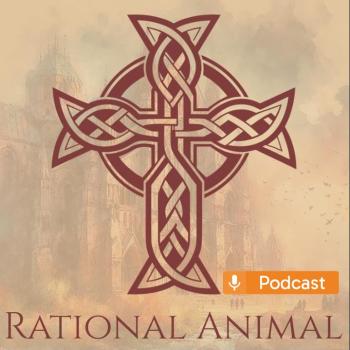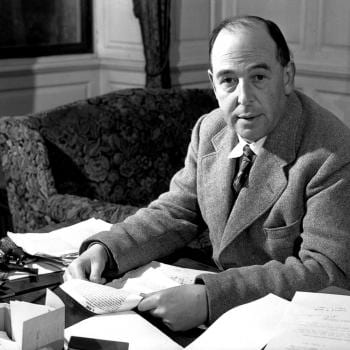One Sunday afternoon when I was 17, I returned from my father’s house to find two elegantly rolled joints waiting for me on my dresser. In those days, I made a custom – even a tradition, if a tradition can be said to form over the span of six months – of sparking one up every Sunday evening at 9:00 PM, just as Married…with Children was coming on. I must have stashed these two under my bed, and my mother must have found them.
My parents had been splitting custody since their legal separation, which took effect when I was four. They’d run through their store of apoplexy years earlier, mainly on little things. They recognized those explosions as symptoms of personal fragility, expressions of frustration with single or part-time parenthood. With that shrewdness kids sometimes develop, I came to see them in the same light. By the time they found themselves with a bad kid, but not a kid bad enough to be shipped to military school, they felt worn out and helpless. Reluctant to charge me directly, my mother confronted me with the evidence by way of letting me know she had my range.
About a month ago, Dr. Gregory Popcak wrote a fascinating analysis of what he calls “perpetual spiritual wanderers” – people who change religions or denominations frequently out of a “deep-seated fear of spiritual commitment.” He cites research tying this wanderlust to “divorce trauma.” As he summarizes Ken Pargament’s thesis, a child’s inability to idealize parents who’ve proven themselves fallible too early evolves into a general mistrust of all authority figures, including institutions like churches. Elizabeth Marquardt writes that the child’s obligation to live in two parallel worlds – the mother’s and the father’s – reinforces this mistrustful tendency.
According to these experts, what drives wanderers from church to church is the vain hope of finding one whose teachings and disciplines reflect their own experiences and perspective. None of them has said as much, but I would bet the wanderer’s sojourn at each church follows a cycle that begins with idealization (“This is just the place for me – thank you, God!”) and proceeds to the bitterest disillusionment (“What a bunch of bastards! Let’s see what you can do for me, Amitabha.”).
I’ll leave Dr. Greg and his colleagues to figure out how to manage this bunch. But I’d argue that the Catholic Church is a perfect destination for adults of divorced parents who have matured to the point where they crave transcendence and stability, but remain resentful of too-intrusive authority, and wary of anyone who seems to court idealizing. Broadly speaking, though the Catholic Church does claim sole possession of absolute Truth and imposes rules in theory, it’s fairly lax about enforcing those rules in practice. Mater Ecclesia casts shadows of the familiar — of the mother who placed your joints, pointedly, on your dresser, leaving you to your conscience.
In determining whether or not to receive communion, for example, Catholics are on the honor system. If you swagger up with your second or same-sex spouse in tow, there is a chance you’ll find a priest or an EMHC willing to get into a taffy pull with you, but that chance is slight. True, the Church posts checkpoints on the road to the sacrament of matrimony and may oblige couples to answer embarrassing questions about their living and sleeping arrangements. And, yes, some open and unrepentant sinners have been refused funeral masses. But these are exceptions to the rule of “See no evil.”
Dr. Greg makes the point that breaches often occur when wanderers “fail to make the connection between their relational and spiritual lives.” Well, the Catholic Church makes it possible for those so inclined to play down relations. For one thing, it makes a point of separating authority from personality. Unlike some of their evangelical counterparts, Catholic pastors tend not to have proprietorial relationships to their churches or exert guru-like influence over their parishioners. The Code of Canon Law – together with the existence of bishops, whose very title is synonymous with “oversight” – lends their fallibility official recognition. You don’t trust Fr. X? Fine – neither does the Church. That’s why Msgr. Y sits at his desk at the chancery all day, fielding complaints about him.
Also, for Catholics, it’s relatively easy to skirt the community viper pit. If you’re the trusting, resilient sort, you can volunteer for everything. If not, you can eat and run (having deposited some extra scutage in the basket to ensure that you are, in some sense, pulling your weight). If you end up making enemies, you can switch parishes until learning of their fall. This isn’t the same thing as switching denominations, as you’ll be getting the very same doctrine and the very same sacraments. Given the arrangements in many dioceses these days, you might end up with the very same priests. Or you can just switch mass times.
Of course, many Catholics loathe every one of these features. Some would prefer to see their parishes become stricter and more Salem-like, whereas others want them to be “accepting,” “welcoming,” or “inclusive.” Probably, a few would attempt to resolve this dialectic with some sort of a carrot-and-stick combo. For a product of divorced parents, suspicious of carrots and inclined to bristle at the sight of a stick, the Church as it is, as it really works in practice, offers a tolerable compromise. Nobody is going to hop in your lap or give homilies affirming every decision you’ve ever made, but nobody will give you the bum’s rush, either.
This benign neglect throws you back on your own resources, which, according to Dr. Greg and his sources — and me — is exactly where veterans of divorce trauma prefer to be. Having heard the truth, you know the goal. Now it’s up to you to figure out how to close the distance. You’re like a Tantalus on whom the gods may smile yet. Able at last to tune out the background noise of personal neurosis and interpersonal drama, you might just hear God’s voice come through.
One more thing. The experience of belonging to two families at the same time, which Elizabeth Marquardt finds so damaging, can, once a person has committed himself to living as a Christian, help him to navigate between the Church and the world. In Crux, Margery Eagen profiles Gina Messina-Dyselt, a “faithful Catholic feminist” who calls herself “doubly-othered.” Other-schmother, I say. Keep it simple, sister – you’re just shuttling between mom’s house and dad’s.
Oh, and another thing. That night I found the joints on my dresser, I…well, let’s just say I opened the window and turned on my fan. But a few months later, shortly before leaving for college, I did quit smoking weed, leaving my mother to remark, “You’re so hyper these days. What’s gotten into you?”















